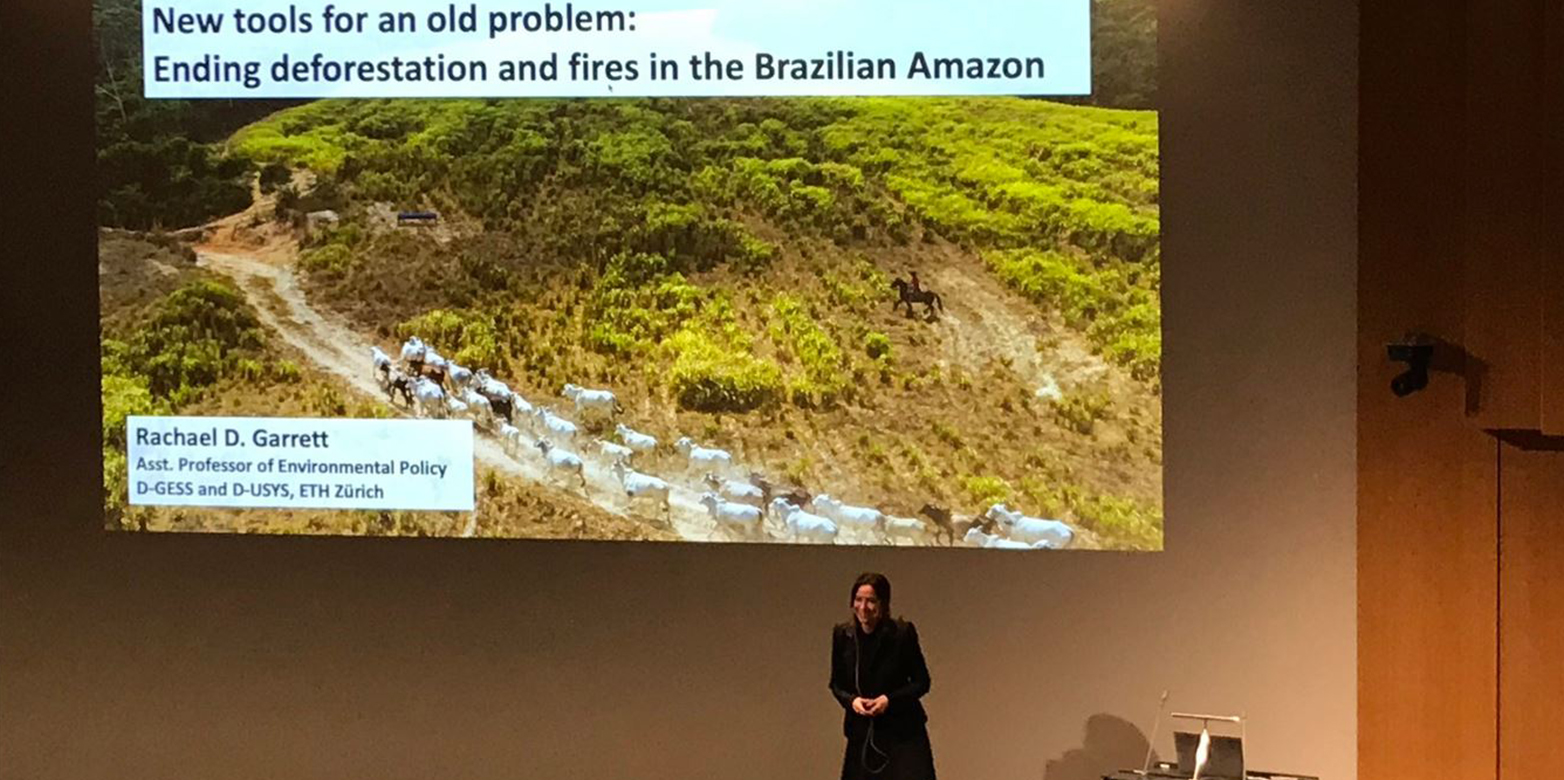New tools for an old problem: Ending deforestation and fires in the Brazilian Amazon
Facts & not fiction. Cattle are still responsible for primary forest loss in the Brazilian Amazon. Professor Rachael Garrett’s recent inaugural lecture on deforestation - causes and necessary policy changes to combat proximity to a tipping point (of no return) - was a real tour de force.

On Monday, February 24, 2020, the Assistant Professor of Environmental Policy at ETH Zurich and ISTP member Prof. Dr. Rachael Garrett gave her Inaugural Lecture on “New tools for an old problem: Ending deforestation and fires in the Brazilian Amazon”. Her inspiring introductory lecture served as a real wake-up call by highlighting the urgent need for policy changes in order to protect the remaining valuable forests.
“We’ve lost 60 million hectares of primary forest (a loss equals to the size of Europe) since 2000.”Rachael Garrett, ETH Prof.
About Prof. Rachael Garrett
Rachael Garrett is Assistant Professor of Environmental Policy with dual appointments in the Department of Humanities, Social and Political Science and the Department of Environmental Systems Science. She is a member of the Institute for Environmental Decisions and the Institute of Science, Technology, and Policy. She has an interdisciplinary training in economics, geography, history, systems thinking, environmental science, and policy analysis. She received her PhD through the Emmett Interdisciplinary Program in Environment and Resources at Stanford University in 2013, her MPA in Environmental Science and Policy from Columbia University in 2006, and her BA in History and Environmental Analysis and Policy from Boston University in 2003.
Dr. Garrett’s research examines interactions between land use, ecosystem services, and economic development at multiple spatial and temporal scales to better understand the drivers and impacts of land change and the effectiveness of existing conservation and agricultural policies. She is particularly interested in how commodity supply chains interact with environmental institutions to shape land use processes, resource distribution, and trade. The applied outcomes of this work are the identification of policies, technologies, and market solutions that will help feed a growing world population without compromising the well-being of future generations. She is particularly interested in ways that we can scale up sustainable practices in commercial farming systems, which occupy a majority of the world's land base.
For further information about Prof. Garrett’s research, please visit our Colloquia webpage.